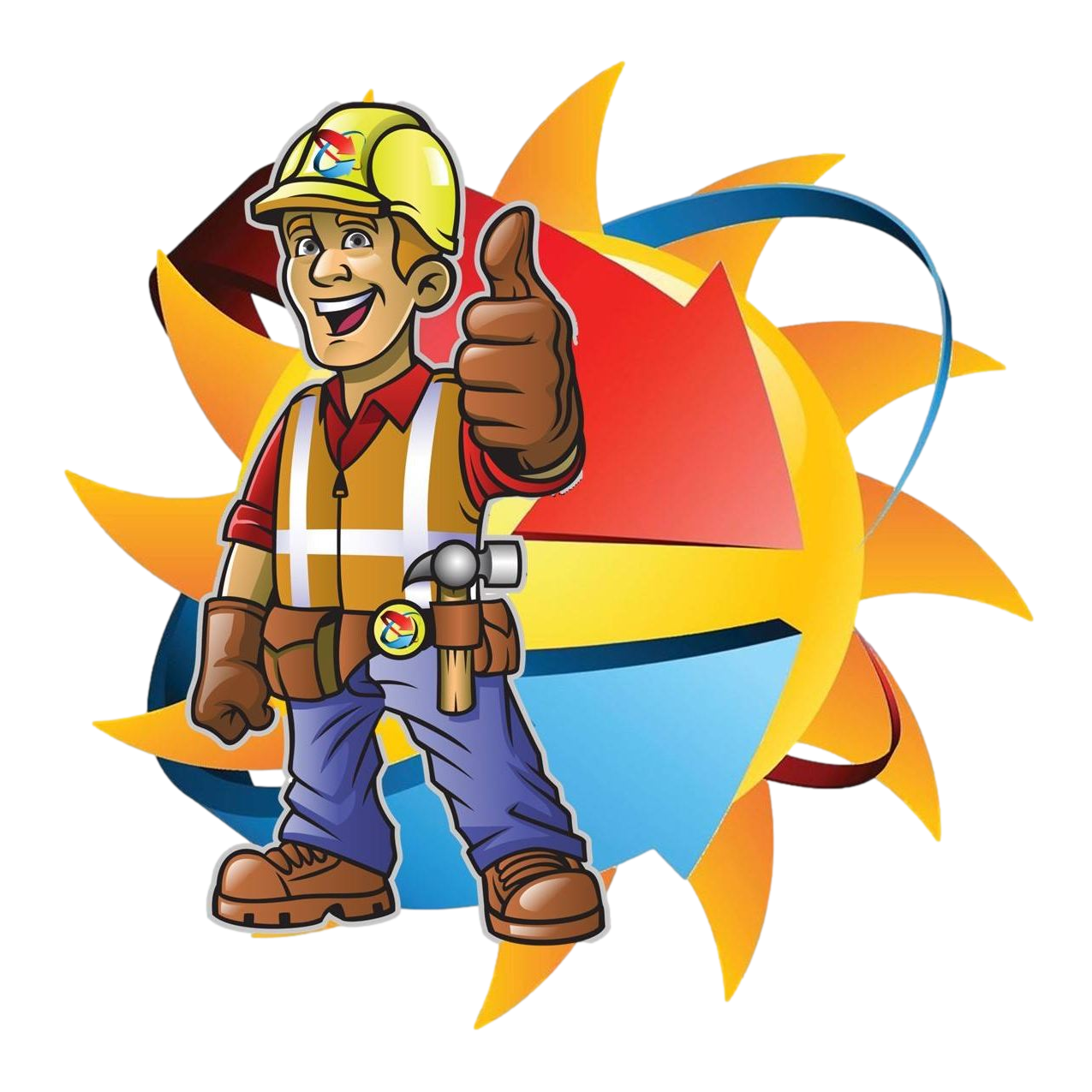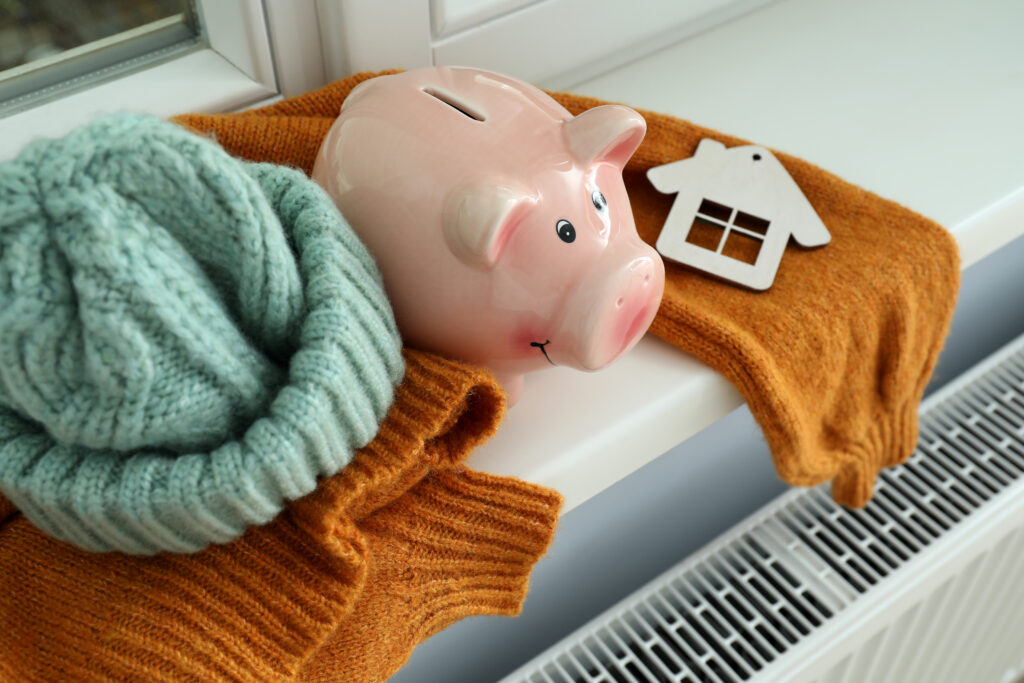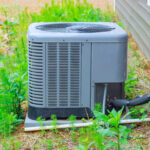As we step into the new year, homeowners in Phoenix are already thinking about how to make 2025 a more comfortable—and cost-effective—year for their homes. When it comes to managing your home’s energy consumption, your HVAC system plays a central role. With Phoenix’s wide temperature fluctuations between summer and winter, finding ways to optimize energy use can not only reduce your carbon footprint but also lead to significant savings on your utility bills.
In this blog, we’ll explore how you can make your heating and cooling systems more energy-efficient in 2025, keeping your home comfortable without breaking the bank.
1. Invest in Energy-Efficient HVAC Systems
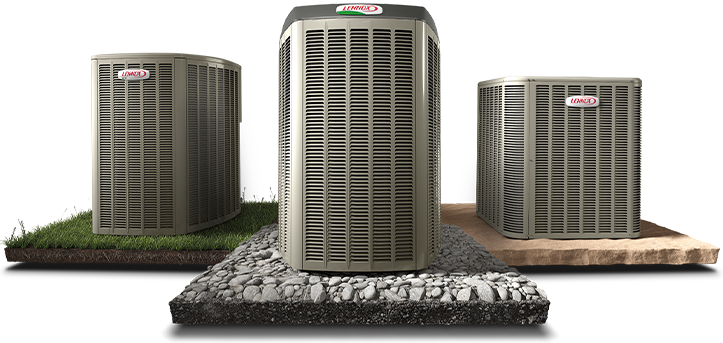
One of the best ways to reduce your energy usage is by upgrading to a high-efficiency HVAC system. Newer systems, especially those with ENERGY STAR ratings, are designed to use less energy while providing superior comfort. Here’s how investing in an energy-efficient HVAC system can help:
- Lower Energy Consumption: Modern HVAC units are built to be more efficient, using less energy to achieve the same or better performance compared to older models.
- Reduced Utility Bills: While the initial investment might be higher, the long-term savings on your monthly energy bills will more than make up for it.
- Improved Comfort: Many newer systems come with advanced features like variable-speed motors and advanced humidity control, improving your home’s overall comfort and air quality.
If your system is more than 10-15 years old, it may be time to consider a replacement. An energy-efficient system could save you hundreds of dollars a year in energy costs.
2. Schedule Regular HVAC Maintenance
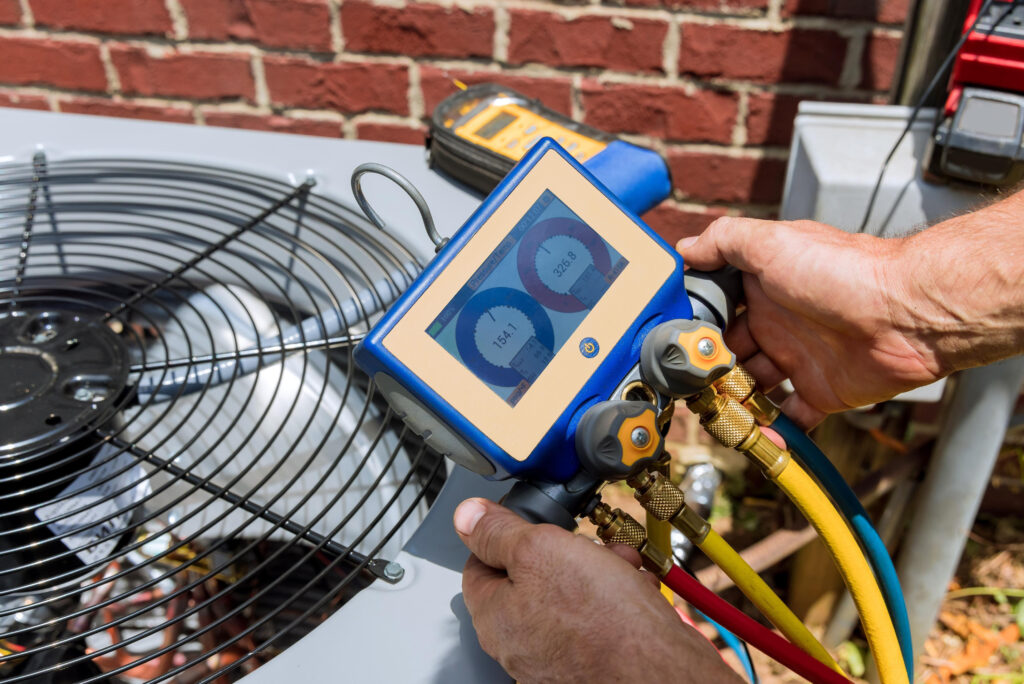
One of the most effective (and affordable) ways to keep your HVAC system running at peak efficiency is by scheduling regular maintenance. When your HVAC system is maintained properly, it works more efficiently, preventing unnecessary energy loss. Regular maintenance services often include:
- Changing Air Filters: Dirty or clogged filters restrict airflow, making your system work harder and consume more energy.
- Cleaning Coils and Ducts: A buildup of dust and debris on the coils or within the ductwork can reduce efficiency. Regular cleaning helps your system run smoothly.
- Checking Refrigerant Levels: Low refrigerant can cause your system to struggle and use more energy to maintain temperatures.
A professional HVAC tune-up ensures your system is working at its best, prolonging its lifespan and keeping your energy costs in check. Plus, catching small problems early means fewer costly repairs down the road.
3. Upgrade to a Smart Thermostat
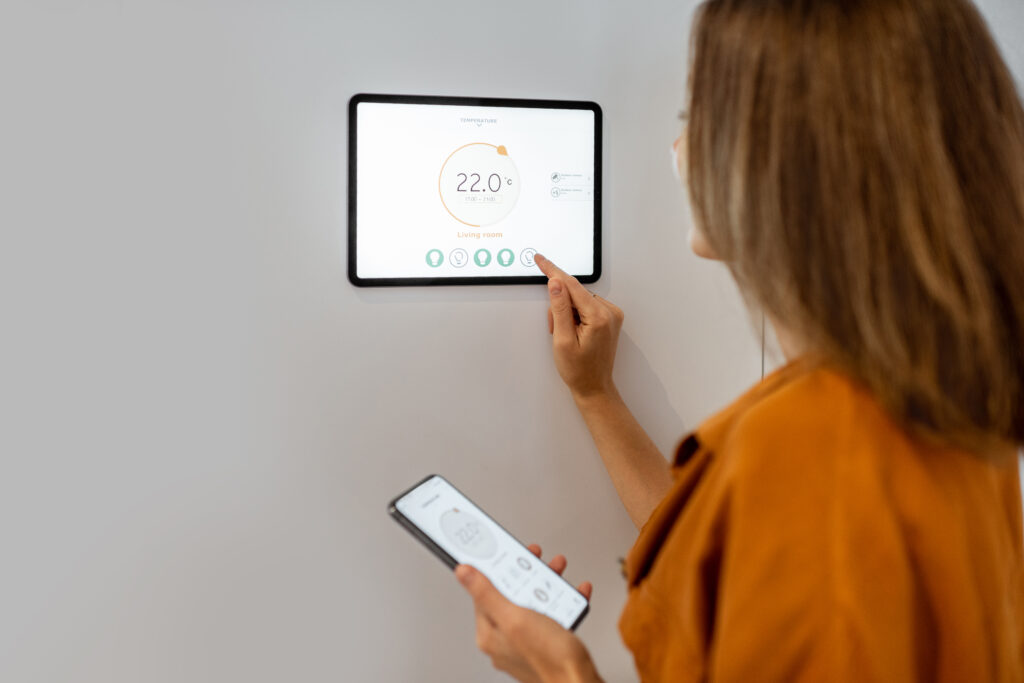
In Phoenix, where temperatures can vary dramatically between day and night, a smart thermostat can help you regulate your home’s temperature more efficiently. Smart thermostats learn your habits over time and adjust the temperature based on when you’re home or away. The result? Energy savings without sacrificing comfort.
Here are some benefits of a smart thermostat:
- Optimized Heating & Cooling: A smart thermostat can adjust temperatures based on the time of day or the weather outside, ensuring you’re not cooling or heating an empty house.
- Energy Usage Monitoring: Many smart thermostats allow you to track your energy usage, helping you identify patterns and areas where you can cut back.
- Remote Control: Control your HVAC system from your smartphone, adjusting settings while you’re away to save energy.
Switching to a smart thermostat can lead to noticeable savings—some homeowners save as much as 10-15% on their heating and cooling bills annually.
4. Seal Leaks and Insulate Your Home
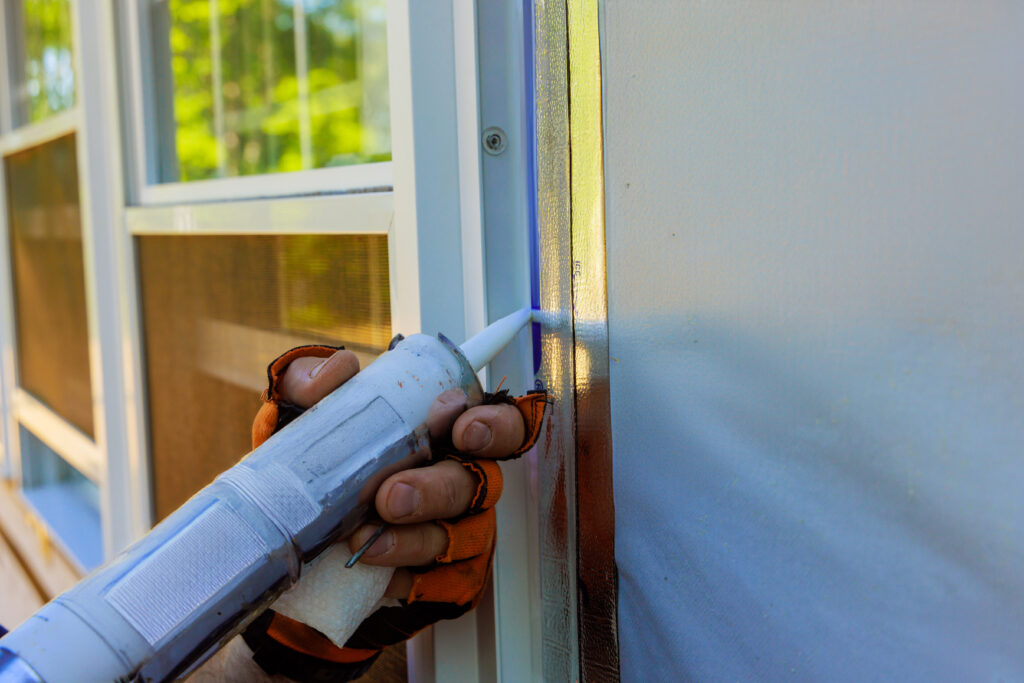
The effectiveness of your HVAC system depends on how well your home retains the temperature. Leaky windows, doors, and ducts can let conditioned air escape, forcing your HVAC system to work harder. Sealing these leaks and improving insulation is a simple yet highly effective way to increase energy efficiency in your home.
- Seal Windows & Doors: Caulking and weatherstripping around windows and doors can prevent warm or cool air from escaping.
- Add Insulation: Insulation helps keep the cool air inside during the summer and the warmth inside during the winter. This is especially important in the attic, where hot air tends to gather.
- Duct Sealing: Leaky ducts can cause air to escape before it reaches your living spaces. Have your ducts sealed to ensure all the conditioned air gets where it needs to go.
These relatively simple improvements can reduce your HVAC’s workload, saving both energy and money over time.
5. Optimize Your System’s Settings
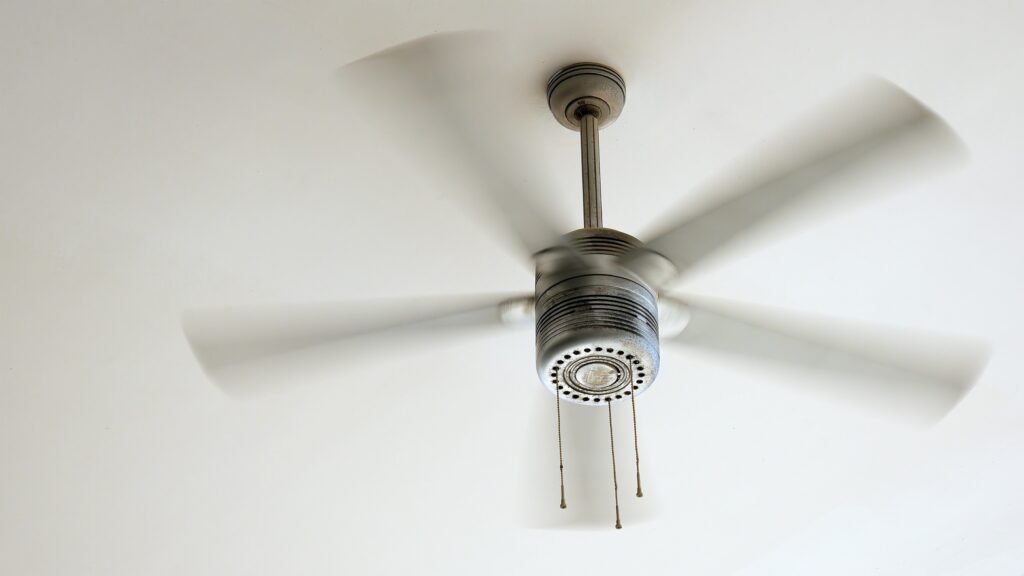
Sometimes, small adjustments can make a big difference when it comes to saving energy. Here are a few tips to optimize your HVAC system’s settings:
- Adjust Your Thermostat: During winter, set your thermostat to 68°F while you’re awake and lower it while you’re asleep or away. In the summer, set your thermostat to 78°F for cooling when you’re home, and increase it when you’re away.
- Use Ceiling Fans: During the warmer months, set your thermostat a few degrees higher and use ceiling fans to help circulate cool air throughout the home. In the winter, set the fans to rotate clockwise to push warm air down.
- Don’t Block Vents: Ensure that your air vents are not obstructed by furniture or other items, so air can circulate freely throughout the room.
Making these minor changes can have a lasting impact on your HVAC efficiency.
6. Consider a Zoning System
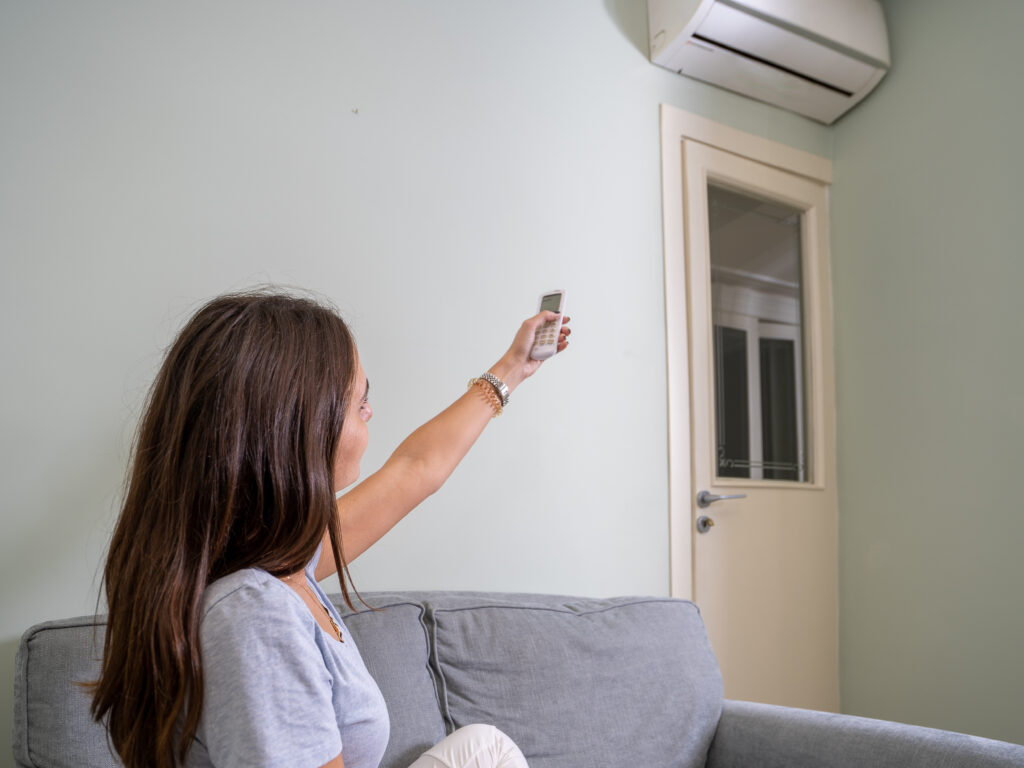
Phoenix’s weather can vary greatly from room to room. While one area of your home may need cooling, another may need heating. A zoning system allows you to control the temperature in different areas (or zones) of your home independently. This means you can cool or heat only the rooms you’re using, which prevents unnecessary energy use.
Zoning systems typically include:
- Zoned Thermostats: Set different temperatures for each zone of your home.
- Motorized Dampers: These dampers direct airflow to specific areas of your home, making sure the energy is used where it’s needed most.
By creating distinct zones, you can focus energy on high-traffic areas and save money by reducing heating and cooling in less-used spaces.
7. Take Advantage of Solar Power
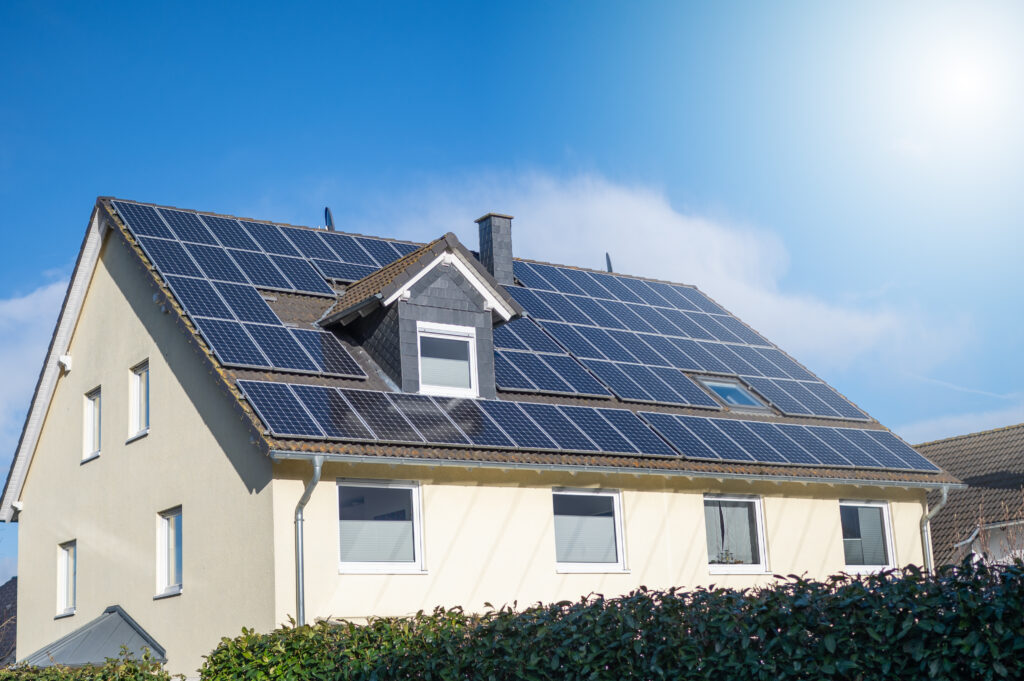
Phoenix is one of the sunniest cities in the United States, making solar power an excellent option for reducing your home’s overall energy consumption. Many HVAC systems can be powered, in part, by solar energy, significantly lowering utility costs.
Installing solar panels:
- Offsets Energy Usage: Solar power can supplement your energy needs, lowering your reliance on the grid.
- Saves Money Long-Term: After the initial installation, solar power can reduce your monthly energy bills substantially.
Some HVAC companies also offer solar-powered HVAC systems, which can increase your system’s energy efficiency even further.
Conclusion: Start Saving on Your HVAC in 2025
With these simple steps, you can reduce your heating and cooling costs in 2025, improve your home’s energy efficiency, and enjoy a more comfortable living space year-round. Whether you’re upgrading to an energy-efficient system, installing a smart thermostat, or improving insulation, every little change adds up to big savings.
If you’re ready to make your HVAC system more efficient in 2025, our team at Pro Solutions Air is here to help. From system upgrades and regular maintenance to smart thermostat installation and energy audits, we offer a range of services to help you save money while staying comfortable in the Arizona heat.
Contact us today to schedule a consultation or service appointment and start saving on your energy bills this year!
📞 623-229-4389
